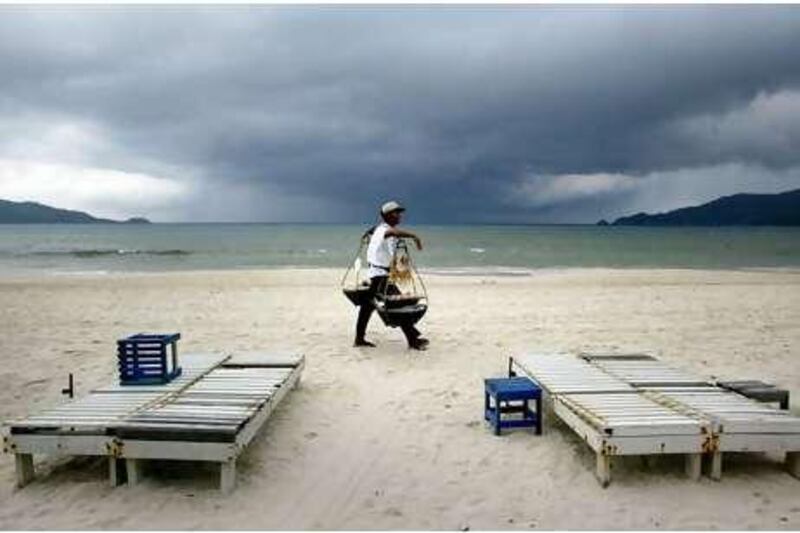From empty sun loungers at luxury hotels to vacant bar stools in dingy pubs, tourism in Thailand is going through its worst slump in decades, a result of the global economic slowdown and its own political turmoil. "This is the hardest hit we've ever encountered in the 48 years we've been promoting tourism to Thailand," Phornsiri Manoharn, the Tourism Authority of Thailand (TAT) boss, said, adding that the airport shutdown put the December 2004 tsunami, bird flu and Sars in the shade.
Her gloom is echoed by everybody in an industry that accounts for 6 per cent of the economy in the self-styled "Land of Smiles", and which directly employs 1.8 million people - about the same proportion of the eligible labour force in Thailand. With arrivals numbers for the key holiday month of December likely to be 500,000, which is one third of forecasts, the TAT's ambitions of attracting 15.5 million tourists this year and 16 million next year are lying in tatters.
Far from enjoying the 70 per cent occupancy they normally see in December, Bangkok's top hotels are 25 per cent full, forcing management to close floors, lay off contractors and ask staff to take unpaid leave. At the height of the airport blockade, one luxury hotel was rumoured to have had just one room occupied. "It would be fair to say that this will be the lowest monthly occupancy we've experienced in the history of the hotel," said Wayne Buckingham, the managing director of the Royal Orchid Sheraton on the banks of Bangkok's Chao Phraya river.
Particularly hard hit has been the hotel corporate and conference business, which is more sensitive than individuals to the travel warnings issued during the airport occupation, the climax of months of sometimes violent political confrontation. "People have been through tough times in Asia before and they've got out of it at the other end, and we'll do as well. It's just that this one will take a bit longer," Mr Buckingham said, estimating 12 to 18 months before things "return to normal".
With the export-driven economy already feeling the pinch from the global economic slowdown, many analysts believe the airport protests by the People's Alliance for Democracy (PAD) may prove to be the decisive factor in tipping Thailand into recession. Even if tourism avoids the large-scale layoffs already hitting manufacturing, getting the industry back on its feet will be yet another headache for the new prime minister Abhisit Vejjajiva, now in charge of a shaky, multi-party coalition.
If the Oxford-educated economist starts diverting provincial cash to tourism in Bangkok or the south, where the best beaches and strongest support for his Democrat party are to be found, he risks further alienating voters in the north and north-east, where loyalty to the former leader Thaksin Shinawatra runs deep. However, the political and economic pressure to intervene will be large, given that the lack of visitors has consequences way beyond topless hotel waitresses and tour guides standing idle outside Bangkok's glittering Grand Palace.
"I've been here for 16 years and it's the first time I've seen business like this," said Tom Casey, a tailor from Chennai in India, waking up from an extended sleep on his shop's sofa to serve his first customer of the day. The only people still smiling are the foreign visitors who decided not to be put off by the likelihood of more political unrest, and who now find themselves getting all the best seats and seeing the sights without the crowds.
"We were very nearly victims of the credit crunch and very nearly victims of the airport blockade, but our hearts had been set on this holiday for a long time and there's no way we weren't coming," said London businessman Michael Gude, who nearly lost his savings in a collapsed Icelandic bank. * Reuters






